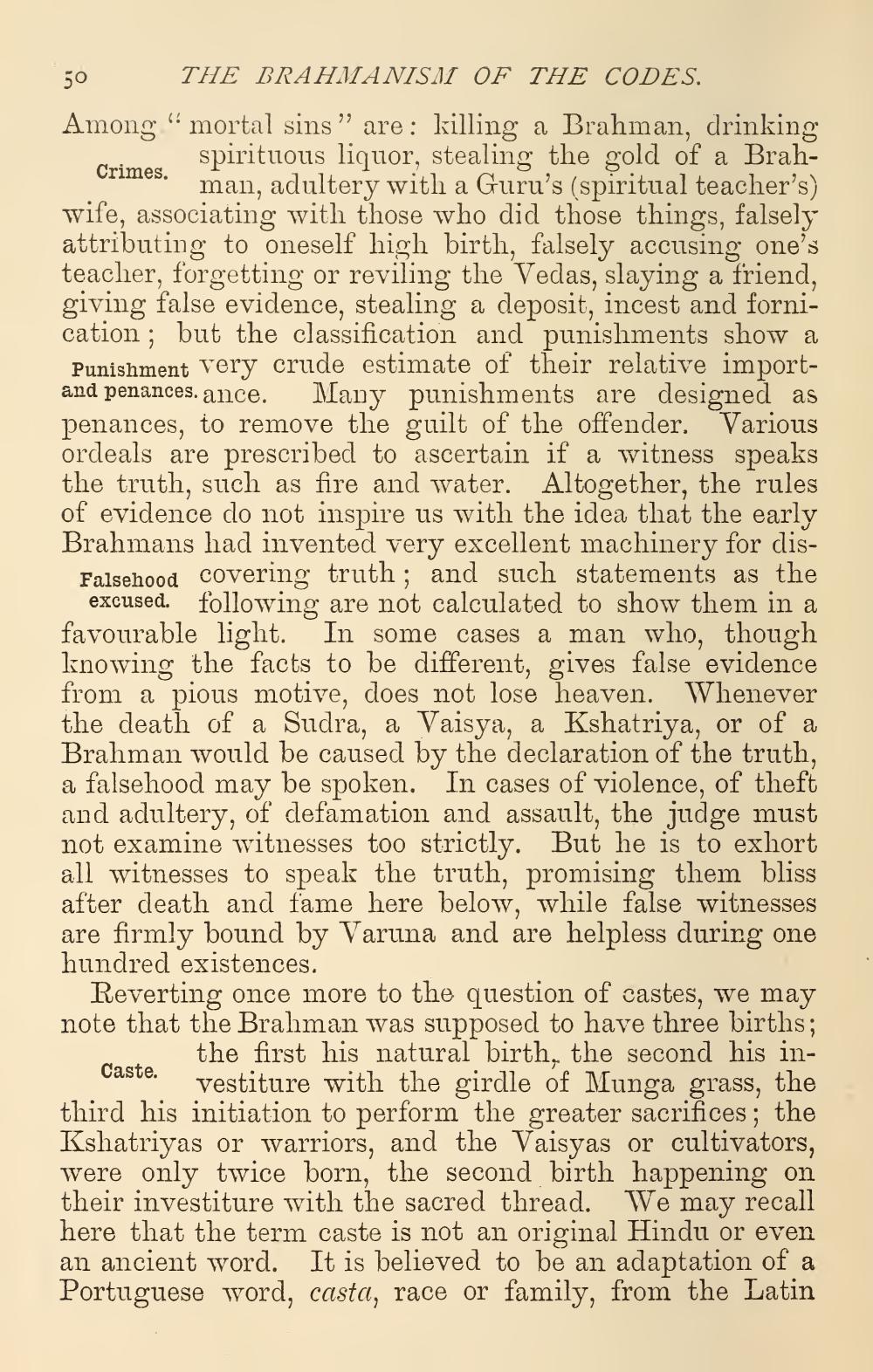________________
Cri
50
THE BRAHMANISM OF THE CODES. Among “mortal sins” are: killing a Brahman, drinking
spirituous liquor, stealing the gold of a Brahresman, adultery with a Guru's (spiritual teacher's) wife, associating with those who did those things, falsely attributing to oneself high birth, falsely accusing one's teacher, forgetting or reviling the Vedas, slaying a friend, giving false evidence, stealing a deposit, incest and fornication; but the classification and punishments show a Punishment very crude estimate of their relative importand penances. ance. Many punishments are designed as penances, to remove the guilt of the offender. Various ordeals are prescribed to ascertain if a witness speaks the truth, such as fire and water. Altogether, the rules of evidence do not inspire us with the idea that the early Brahmans had invented very excellent machinery for disFalsehood covering truth; and such statements as the
excused. following are not calculated to show them in a favourable light. In some cases a man who, though knowing the facts to be different, gives false evidence from a pious motive, does not lose heaven. Whenever the death of a Sudra, a Vaisya, a Kshatriya, or of a Brahman would be caused by the declaration of the truth, a falsehood may be spoken. In cases of violence, of theft and adultery, of defamation and assault, the judge must not examine witnesses too strictly. But he is to exhort all witnesses to speak the truth, promising them bliss after death and fame here below, while false witnesses are firmly bound by Varuna and are helpless during one hundred existences.
Reverting once more to the question of castes, we may note that the Brahman was supposed to have three births; Caste.
the first his natural birth, the second his in
vestiture with the girdle of Munga grass, the third his initiation to perform the greater sacrifices; the Kshatriyas or warriors, and the Vaisyas or cultivators, were only twice born, the second birth happening on their investiture with the sacred thread. We may recall here that the term caste is not an original Hindu or even an ancient word. It is believed to be an adaptation of a Portuguese word, casta, race or family, from the Latin




